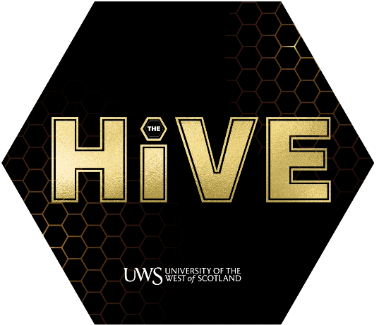Compared to previous decades, universities today offer great choice and opportunity when it concerns enterprise and entrepreneurship. Accommodating approaches within standalone courses and wider programmes, innovative initiatives where students and staff can progress their ideas, and greater engagement with the enterprise ecosystem all result in universities being suitably placed to encourage entrepreneurial activity.
In general, the societal and economic contributions of the HE sector are vast, and a university’s enterprise agenda including the creation of new businesses play their part. Start-ups originating from universities continue to support industries up and down the country, and compliment governmental ambitions including the UK government’s ‘Industrial Strategy’, Scotland’s ‘National Innovation Strategy’, and ambitions of the Entrepreneurial Campus. A 2022 report, published by the National Centre for Universities and Business (NCUB), state that graduate entrepreneurs make up 8.7% of those who completed a university course in 2020. However, this figure can be improved upon through the role of incubators and aligning with key teaching and learning activities and principles (such as Advance HEs PSF framework) alluding to course or activity design, context, and impact.
Thinking beyond the classroom – Incubators
Business incubators within the university environment augment teaching and learning with real-world engagement and the advancing of an idea and knowledge-rich network. Incubators provide a route for students, and staff, to create new ventures and develop both the business and themselves. As a hub of creativity and innovation, incubators also become a space of trust and collegiality, as the hopes and fears of individuals or groups are shared.
Incubators are all-embracing and should maintain an ‘open door policy’ that invites all businesses to collaborate and share both knowledge and experience. With this in mind, these spaces assist individuals and groups in many ways, including critiquing an idea, establishing a market for the product or service, and building these valuable networks.
I am fortunate to be part of a thriving team of academics and business professionals, working within the University of the West of Scotland’s (UWS) incubator, known as ‘The Hive’.

With spaces at Lanarkshire and Paisley campuses, we offer the following services to students, staff, alumni, and local businesses:
- Business support through enterprise-relevant workshops and 1-to-1 mentoring
- Brainstorming and pitching areas, for students to work together or with academic supervision
- Seminar spaces for teaching, learning, presentations, and business pitching
- Digital/green screen rooms with the latest technology for filming and creating digital content
- Open plan, hot desk spaces to work flexibly in teams or individually
- Meeting rooms to assist business owners and maintain external engagement with clients and partners.
This regular involvement in the development of new business ideas, and supporting enterprising students and staff, improves the likelihood of enterprising outcomes and can be more effectively measured and analysed within incubators and (in)formal sessions.
Enriching enterprising experiences and augmenting attributes
Incubators promote experiential learning and work-ready skills, and also lead to confident teams for external engagement and industry-facing initiatives such as the ‘Help to Grow: Management Course’ and Small Firms Enterprise Development Initiative (SFEDI). Following on from my first two books, where I discuss the cultural considerations required and outline a method, motive, message, and medium process for entrepreneurial universities, I believe that incubation spaces can measure to what extent enterprising impact is realised and which key learning outcomes are achieved.
The Professional Standards Framework (PSF) aligns well to the purpose and expectations of enterprise and incubation spaces within a university. Reviewing the dimensions of the framework, those leading and managing incubators should consider the following:
Areas of Activity:
- A2 – teach and/or support learning through appropriate approaches and environments
- A4 – support and guide learners.
Reflecting on these areas of activity, incubators allow for the tailoring of teaching and learning which is timely, practical, and engaging with those out with the university and in the enterprise network. Assisting programmes and courses, incubators provide a flexible space where entrepreneurial contexts and industry perspectives can be addressed, with the learner’s ambitions and objectives in mind. What can your university provide now, towards helping learners become entrepreneurial?
Core Knowledge:
- K3 – critical evaluation as a basis for effective practice
- K4 – appropriate use of digital technologies, and resources for learning.
Considering these core knowledge elements, educators and business professionals within incubators can test the most appropriate methods of teaching and learning, as well as utilise tools and techniques which support a business’s infrastructure. How can incubators encourage more enterprising ideas, businesses, and adopt digital platforms and resources?
Professional Values:
- V4 – respond to the wider context in which higher education operates, recognising implications for practice
- V5 – collaborate with others to enhance practice.
Focussing on these values, establishing close links with industry and policy makers are crucial for universities to be truly enterprising. In avoiding an echo-chamber of enterprising beliefs and stagnated set of strategies within the institution, collaboration and communication with those out with the university further strengthens this open-door policy that ‘The Hive’ at UWS promotes.
Things to consider…
Clear continuity is key for incubation spaces within universities, in maintaining a message, retaining staff, and creating tangible impact. Additionally, its success is in its synergy. Therefore, senior leaders within universities should champion incubators with time and talent. They should also let the enterprising practitioners create memorable and life changing experiences for students and staff through greater exposure to enterprise and innovative activity.
Outcomes from active incubators can then go beyond enterprising impact and established start-ups, and enable Continuing Professional Development (CPD) opportunities for staff, comprising of timely learning, practical skills attainment, and greater programmatic relevancy.
Robert James Crammond is a Senior Lecturer in Enterprise at the University of the West of Scotland (UWS). He teaches several enterprise, leadership, management, and research skills courses. A researcher, editor, author of books discussing university-based entrepreneurship, consultant, and speaker, Crammond leads the business incubation space at UWS’s Lanarkshire campus.